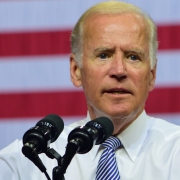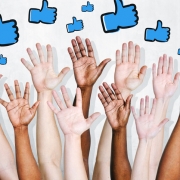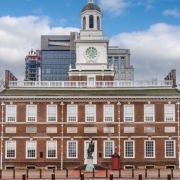I can’t not act. It’s what I was made to do.” Those are the words of Jennifer Lawrence, one of the highest-paid actresses in the world. They’re from a Vanity Fair interview conducted several years ago.
Lawrence is lucky enough to live in a time and place where what she was made to do also affords her a living. Since she “can’t not act,” it’s not unreasonable to speculate that Lawrence puts herculean effort into her craft. Loving what animates her, work is an expression of her unique genius. Indeed, as she acknowledged in the aforementioned interview, acting is the “only thing I’m good at.”
To be clear, Lawrence is an outlier. That’s well understood. At the same time, Lawrence’s passion is a reminder that arguably the greatest gift of economic growth is the growing ability of people to showcase their individual skills and unique intelligence while on the job.
This wasn’t always the case. Before automation, and yes, global trade, the vast majority of human exertion was directed toward the creation of food. Work was life, albeit not in a happy way. People worked dawn to dusk six days per week in order to survive. Most worked until they died.
Thanks to automation and trade, it’s more and more the case that people can “outsource” to others their need for food, shelter, clothing, transportation, etc. Think about what that means. If it’s hard to contemplate, stop for a minute and imagine what your hair would look like if you had to cut it, or what your clothes would look like if you had to make them. There’s a reason clothes from more primitive times and locales resembled and resemble rags.
That we can buy from others doing what they do best means we have much greater odds of specializing in the work that we “can’t not do.” This is the stuff of economic growth. Specialized workers are productive workers.
Importantly, there’s a human side to all this. More and more of us will work until our last days not because we have to, but because we want to.
And because work for all-too-many is more and more about doing what we want to, it should be stressed that work is increasingly the stuff of happiness. Work reinforces what we’re good at, which means it’s hard for a growing number of us to not be working.
This wildly uplifting truth about work is something else tone-deaf politicians plainly missed in their hysterical responses to the new coronavirus. Having panicked over a virus that thankfully sickens very few, and that very thankfully kills even fewer, politicians expressed their alarm through the forced shutdown of economic activity. Unnerved by something they didn’t understand, they substituted their extraordinarily limited knowledge for that of the marketplace on the way to putting tens of millions out of work in the U.S. alone.
Tragic about all this is that politicians aren’t just alarmist. They’re also self-unaware. Having engineered an economic contraction that wiped out the livelihoods of tens of millions, those same politicians then doubled down amid their stupor as they extracted trillions of dollars from the private economy in a panicked effort to throw money indiscriminately at a problem of their own making. Yet in attempting to buy calm after their act of economic terrorism, they just added to their insult of the workers they devastated. Think about it.
It’s not just for money that we work. That’s why when politicians suffocate economic growth under the pretense of protecting us from our allegedly stupid selves or stupid others, we lose much more than income. For all-too-many we lose what causes us to excitedly get out of bed each morning.
Work is once again happiness. Figure that Warren Buffett could, if he wanted to, retire thousands and thousands of people to lives of monetary splendor. But he couldn’t give them happiness. Happiness comes from work done well.
Politicians shut down “non-essential” businesses, and then paid those whose jobs vanished a pittance to soften the blow of their unemployment. But these endlessly club-footed legislators missed that jobs are so much more than money. Work is where people get to be stars and superstars.
Writing about the men and women crafting amazing dishes in his super-high-end kitchens in 32 Yolks, legendary chef Eric Ripert described their “dangerous, rock star charisma that comes from those who are truly good at what they do.” Ripert’s book should be required reading for every politician.
Though most would likely gloss over the essential truths about passionate work, a lightbulb might come on in the heads of some. They might see that work is so much more than a way to pay the bills. Thanks to economic growth that has nothing to do with politicians, and everything to do with entrepreneurs outrunning their outstretched hands, more and more of us get to be truly good at what we do.
Looked at in terms of the present, politicians implicitly said workers couldn’t be trusted, and that businesses couldn’t be trusted to remain open amid what they proclaimed a pandemic. Their message was we’ll “shut you down for your own good, but pay you while you’re idled.”
How they missed the point. Precisely because so many modern workers love getting to do what “they’re truly good at,” they would have made all manner of changes to their daily routines just so that they could continue to work. Just as athletes play hurt all the time simply because they can’t not play, free workers would have made all manner of adjustments to how they work amid a spreading virus just so that they could do what makes them stars.
The problem yet again is that politicians on all levels panicked, and having panicked, they foisted cruel, one-size-fits-all solutions on their constituents that resulted in sick-inducing job loss and bankruptcy. In the process they robbed millions of what gives them daily meaning and happiness. and others of the chance to eventually find work that uniquely suits them, but that is invariably a consequence of the economic growth that politicians so obnoxiously snuffed out.













